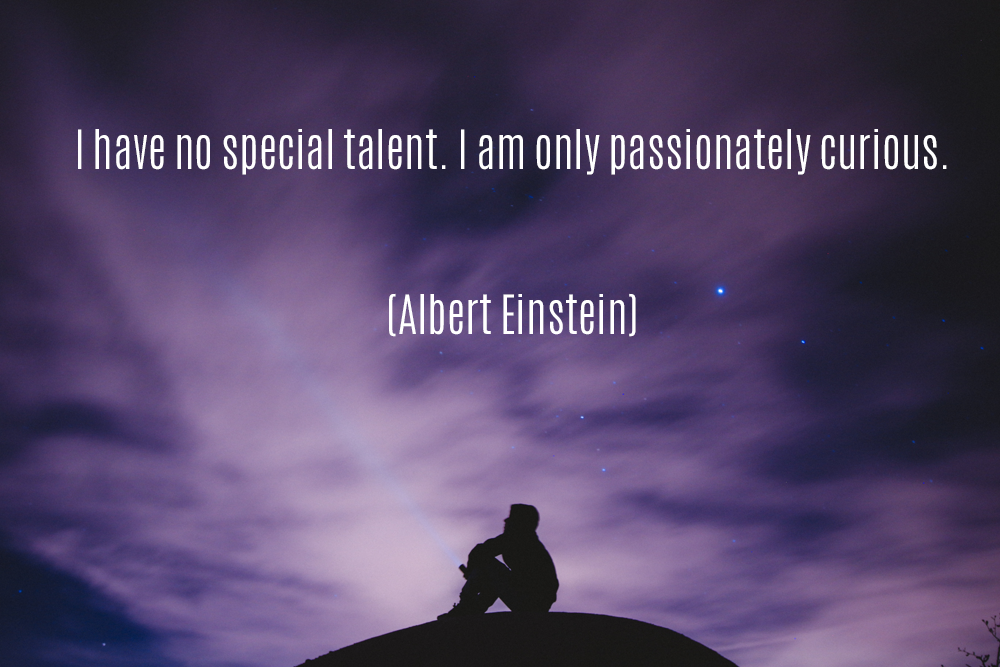Curiosity: We’re Studying The
Brain To Help You Harness It
They say curiosity killed the cat for a reason. Being curious has many advantages, but it is also associated with risk taking. But what is curiosity exactly? Is it really just one personality trait that you can have more or less of? Or do people have different “curiosity types” – being naturally more curious about people, sensations or knowledge?
We’re looking at people’s brains to find out. And we are hoping our research can help unlock the benefits of curiosity for learning and education.
We already know a bit about the neuroscience of curiosity. Have you ever desperately struggled to study a topic that just does not spark your curiosity, and then found you remember nothing when you try to recall it later? This makes total sense, as research demonstrates that being in a state of high curiosity enhances our memory for interesting information.
It might seem obvious that if you are curious about something, you pay more attention to it, making it easier to remember later – but the effects of curiosity on memory are more complex than this. Being in a highly curious state also improves our memory for information unrelated to what made us curious in the first place.

The link with learning can actually be seen in the brain. Curiosity leads to activation of several areas of the brain, particularly the regions known as the substantia nigra, ventral tegmental area and the hippocampus. And connectivity between these same regions are associated with learning.
Fear and curiosity
Some early philosophers speculated that curiosity evolved as an instinct that helps us adapt to new environments by driving us to explore them. However, this seems to conflict with other theories suggesting we fear new environments because of the potential danger they may hold.
It seems curiosity and fear can be provoked by the same situations, with curiosity sometimes overriding our fear of exploring new things. For some, fear may form part of the excitement of curiosity. We know that brain systems linked with wanting to receive external rewards (like money or food) are activated when we are curious. This indicates that curiosity is a sort of craving of more information.

But curiosity has also been associated with characteristics that reflect risk taking, stress tolerance and thrill seeking. This is how curiosity got its bad wrap as a mortal danger to felines.
Personality type
We all know some people tend to be more curious than others. Supporting this, research shows some individuals experience curiosity more frequently or intensely than others. But is curiosity as a personality trait just a level of degree – more versus less?
Instead, it may be that we are all similarly curious, but that personality drives us to be more curious about specific things or situations. These are known as curiosity “types”.
Epistemic curiosity has been widely researched. This describes a person’s desire to acquire new information – such as facts, concepts or ideas – and bridge any gaps in their knowledge.
Social curiosity, on the other hand, describes an individual’s fascination and fixation on how other people think, act and feel – which subsequently affects how they navigate the interpersonal world. People who show perceptual curiosity, on the other hand, try to maximise the sensory information they take in – like your friend who can’t stop looking around at anything and everything.
To help us understand if curiosity is one or many traits, our research looks at whether these different curiosity types are supported by different brain mechanisms. We also want to know whether being struck by a moment of curiosity sparks activity in the same brain areas that explain how curious a person is generally.
So far, our preliminary results suggest we may have identified an important area relating to epistemic curiosity – but not other types. Known as the fornix, this is a critical brain structure that connects the hippocampus (an important brain hub for memory) and brain areas related to learning, information seeking and exploration.
These findings make total sense. The more curious we are about information in general, the better the connections between brain networks associated with learning, information seeking and motivation.
Harnessing curiosity
This research can help us to understand how we can better harness curiosity in the real world, such as in work and educational settings.
As the fornix is related to enhanced learning, this suggests we should strive to create learning environments that foster exploration of ideas and information searching. This will help boost curiosity, with the fornix helping us remember what we learn better. Gaining knowledge in this way would be very different from just delivering a set teaching material.
There could be important benefits. Current research has shown that the effects of curiosity on learning are even stronger for children from families with a low socioeconomic status.
In the next years, our research will map out how different types of curiosity are related to different brain areas and how this enhances learning for various types of information. We will then better understand how our individual curiosity helps us to learn certain things in ways that are unique for us.
But it is already clear that there is a lot to gain from valuing and fostering curiosity in children. And this is not only true for children. Continuously stimulating our curiosity could lead to a more prosperous and fulfilling life as adults too.![]()
Ashvanti Valji, PhD researcher, Cardiff University and Matthias Gruber, Sir Henry Dale Fellow & Principal Investigator of the Motivation and Memory Lab, Cardiff University
This article is republished from The Conversation under a Creative Commons license. Read the original article.
Want To Read More Great Psychology Articles?
See following link to check out a fascinating collection of psychology articles by leading academics and researchers.
Recent Articles
-
Dr. Jody Carrington Interview | Trauma, Connection, and Mental Health
Feb 04, 26 08:18 AM
Interview with Dr. Jody Carrington on trauma integration, loneliness, burnout, and what it really means to feel seen. -
Psychology Articles by David Webb
Jan 26, 26 04:52 AM
Discover psychology articles by David Webb, featuring science-based insights into why we think, feel, and behave the way we do. -
Why Doing Nothing Feels So Hard | Psychology of the Restless Mind
Jan 26, 26 04:42 AM
Why does doing nothing feel uncomfortable? Psychology research reveals how attention, the default mode network, and unstructured thought shape inner restlessness.
Please help support this website by visiting the All About Psychology Amazon Store to check out an awesome collection of psychology books, gifts and T-shirts.






